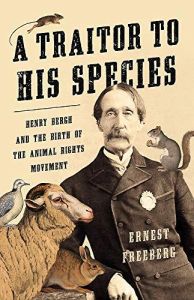Melden Sie sich bei getAbstract an, um die Zusammenfassung zu erhalten.

Melden Sie sich bei getAbstract an, um die Zusammenfassung zu erhalten.
Ernest Freeberg
A Traitor to His Species
Henry Bergh and the Birth of the Animal Rights Movement
Basic Books, 2020
Was ist drin?
An eccentric fanatic, ASPCA founder Henry Bergh was the 1800’s most vocal animal-rights champion.
Recommendation
In 1866, Henry Bergh – a middle-aged, aristocratic failed author and heir to a business fortune – founded the American Society for the Prevention of Cruelty to Animals (ASPCA) in New York City. Bergh became the United States’ most effective advocate for the then-burgeoning – now prominent – animal-rights cause, and its most famous lightning rod. In this fascinating biography, history professor Ernest Freeberg provides an inspirational report on Bergh’s trailblazing work and landmark success in the nonprofit world.
Summary
About the Author
Ernest Freeberg, Distinguished Professor of Humanities and head of the History Department at the University of Tennessee, also wrote Democracy’s Prisoner: Eugene V. Debs, The Great War, and the Right to Dissent.



















Comment on this summary